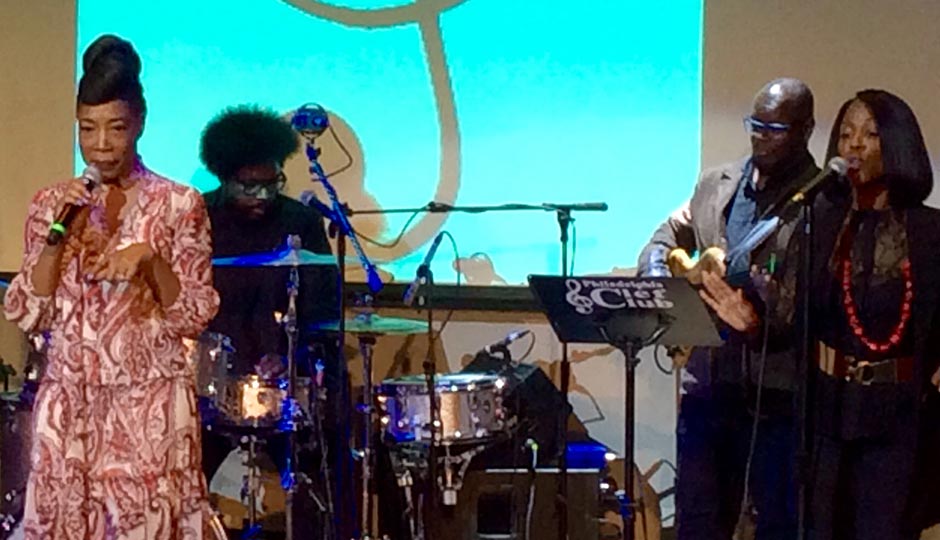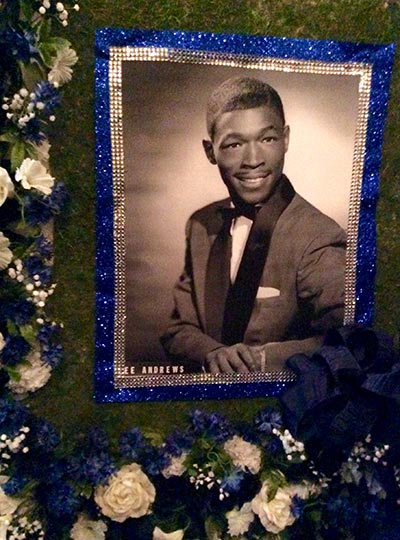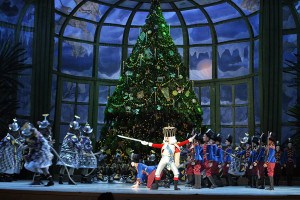Philly Music Royalty Turned Out to Celebrate Lee Andrews’ Life

Lee Andrews (left); his children Ahmir “Questlove” Thompson and Donn T (right). Photos | Bobbi Booker
A collective gasp erupted in the Philadelphia music community when news of doo-wop superstar Lee Andrews had died March 16th at the age of 79. It was over five decades ago that Andrews — then a Bartram High schooler — formed and become the lead singer of the 1950s doo-wop group Lee Andrews & The Hearts. Andrews’ strong-but-tender tenor voice and the groups’ harmonizing four-part vocal base was the foundation of The Hearts’ hard-to-beat sound that influenced similar vocal acts like The Moonglows, The Orioles, The Drifters, The 5 Royales, The Five Keys, The Midnights and The Ravens.
On Saturday, a memorial tribute to celebrate Andrews was held, as per his request, at the Clef Club of Philadelphia. Born Arthur Lee “Andrew” Thompson in the summer of 1936 in Goldsboro, North Carolina, Lee relocated with his parents to Philly as a toddler. He dropped his first name and added an “s” to Andrew, and began performing as Lee Andrews as a teen. His father, Beachy Thompson, sang with the pioneering gospel group The Dixie Hummingbirds, so one could say Lee was born into — and contributed to — a storied musical lineage. In addition to being the father of The Roots’ Ahmir “Questlove” Thompson, Thompson and his wife, Jacqui, parented a daughter, the enigmatic vocalist Donn Thompson — known by audiences as Donn T.
According to his children, it was just two weeks ago that they discovered 50 pages of Lee’s handwritten life story and that list morphed into a final wish list that only a sage performer such as Lee could craft from the wealth of his experiences. In the months prior to his death, Lee had taken pen to paper and charted his life performing for sold-out audiences at Madison Square Garden, The Beekan Theater, The Bottom Line and Radio City Music Hall in NYC. He told of taking the stage of The Spectrum in Philadelphia and held-over performances at the Valley Forge Music Fair and the Claridge in Atlantic City, N.J., along with the countless nightclub and television appearances throughout the United States and Europe.
“My hope is to experience something together that is authentic, musical, spiritual — something true, something celebratory,” offered Donn T in her greeting to the more than 200 gathered on the Avenue of the Arts. “That is what was on his wish list; that is what he wanted. He requested it.”

Photo | Bobbi Booker
Like a well-honed performance unit, the Thompson kids put on one last show for their dad, his peers and their family. Donn T performed original work and covered her father’s tune “Midnight.” Questlove — who’s bandleader of The Tonight Show Band — took center-stage behind the drums for a myriad of performers in an encore befitting a music genre superstar. Longtime radio DJ Steve Kurtz emceed the afternoon. Jeff Bradshaw and Brass Heaven opened and closed with a horn set, while the greats of doo-wop gathered. Richard Booker crooned “Long Lonely Nights” and The Tymes elicited whoops with the classic “So In Love,” while Bunny Sigler touched hearts with duel performances of “The Lord’s Prayer” and “Teardrops.”
The Hearts labored in the trenches of Philly doo-wop but found success was elusive until 1957 when Main Line issued a ballad co-written by Andrews, “Long Lonely Nights.” It was an instant hit and the song placed at No. 11 on the Billboard R&B chart. Over the course of the next year, The Hearts rose to fame. They had more hits, including “Tear Drops” and “Try The Impossible.”

Photo | Bobbi Booker
Fame came quickly, and after it, there was a leveling off. After more personnel shifts, Andrews left the group to go solo. He had a song on the Casino label, “I Wonder,” backed with “Baby Come Back.” He had a song on the Jordan label, “A Wise Man Said,” backed with “If You Only Cared.” He had singles with Swan Records (out of Philadelphia) and on Parkway Records.
In 1965, Lee reformed the Hearts and released music through the late ’60s: singles like “Island of Love” and “Cold Gray Dawn.” There were more group singles for Crimson and RCA Victor labels, more solo singles for VIP. The last Lee and The Hearts releases came on Lost Nite in 1968.
In the late ’60s, Andrews and Jacqui opened a dress shop, The Klothes Kloset, in West Philadelphia. In the early ’70s, he returned to the recording studio with a new group, Congress Alley. The oldies circuit revival of the ’70s provided momentum for Lee to form one more edition of Hearts, only this one a family affair with Lee, his wife and youngest children. Lee was father to five children: (the late) Anthony Quarles, Thelma “Kandi’ Parham, Dayne Thompson and the aforementioned Donn T (called “Little Bird”) and Questlove (who was dubbed “Baby Boy”).
It was during one of those on-the-road episodes that a 12-year-old Questlove was drafted into performing as a replacement for an injured drummer and started his life as a professional musician. In an emotional, and often funny reflection, Questlove spoke of the parallel creative lives the father and son shared from record collecting to challenging career decisions.
“He picked the [doo-wop] music of his youth over the [gospel] music his father practiced, and had to make decisions early in his life about how to forge a career, in his case putting a group together in high school and struggling to find an identity, changing their names, changing managers and finally emerging as a legitimate group,” said Questlove. “It also meant that as he got older, he had to find a way of continuing to do the things that he loved, which was singing. In this case, it meant reviving his group a number of times and then finally, eventually turning his original group into a family act and creating an existence for the four of us.
“My mother, Jacqueline, my sister Donn and myself would go around the country so that he could do the thing he did best and that he loved the most. All of those aspects of his life shine really bright to me because they are basically the aspects of my life. I’m not going to say it’s kind of eerie, but I won’t say it’s not eerie, the similarities that we have: I, too, had to stake a claim to a music that wasn’t my father’s music. He was slow to ease into hip-hop. The artistic merits of my teen years are rather legendary. Every teenager has a rebellion soundtrack, and it just so happens that mine came courtesy of an extremely loud Public Enemy back in 1988. He’d scoff [but] … once the checks came in, Dad was a quick fast to remind me of what an amazing career coach he’d been.”
As a lead vocalist, Andrews’ influences were mostly solo artists like Bing Crosby, Frankie Laine, Frank Sinatra, and especially Nat King Cole. “It’s been stated that my dad was a wonderful crooner,” continued Questlove. “I know that he beamed with pride when Marvin Gaye and George Clinton mentioned my father as their influence on their illustrious careers in both of their biographies. That made him happy.”
When The Roots were inducted into the Philadelphia Music Alliance’s Walk of Fame in October 2015, Questlove and Andrews (inducted in 1992) became the first father-and-son duo on the Walk. Later, Andrews will be inducted as the first artist in the Philadelphia Music Hall of Fame in November 2016 .
“This is a life we’re talking about,” said Questlove. “A long, rich, complicated life.”
Follow @bobbibooker on Twitter.


